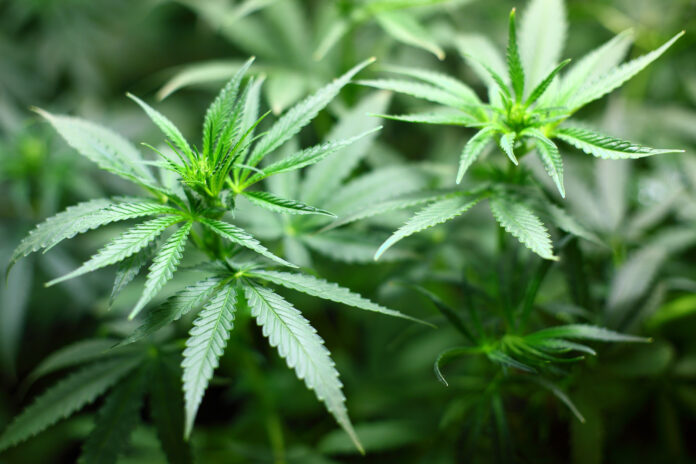UC Davis extends cannabis, hemp research for cannabis science
Along with various other endeavors in agricultural and environmental science, UC Davis also takes part in cannabis research. To extend its research, the school has recently opened a Cannabis and Hemp Research Center and it has partnered with the Biopharmaceutical Research Company (BRC), a Drug Enforcement Administration (DEA) approved pharmaceutical company, according to a UC Davis article.
Soon after the Control, Regulate and Tax Adult Use of Marijuana Act (Proposition 64), was passed in 2016, UC Davis researchers came together to discuss plans for cannabis research. The Cannabis and Hemp Research Center was proposed, and it just opened this school year. Two co-faculty directors will be chosen in the near future, according to Cindy Kiel, the executive associate vice chancellor for the office of research.
“The Cannabis and Hemp Research Center that was just announced was designed to start pulling faculty together that already have these research interests, so we can explore the issues surrounding cannabis from a holistic, interdisciplinary approach,” Kiel said. “It will help us solve some of the big questions still out there about cannabis.”
Currently, the Cannabis and Hemp Research Center is comprised of faculty from various departments, including plant sciences, veterinary medicine and viticulture and enology, according to the center’s website.
Due to the university’s strong departments in agricultural, environmental and veterinary science, Kiel said that UC Davis is poised to be a leader in cannabis research. On campus, researchers can study cannabis in all aspects, from its agricultural growth and cultivation, to its use in human and animal subjects as well as its impacts on environmental health and safety.
“We should be a leader in this area,” Kiel said. “We have all the tools to really push the boundaries of knowledge of what we know about this plant. It’s not just one college, it’s all of the disciplines working together, and I think that is where we will get the real synergy to make things happen.”
Research on cannabis already occurs on campus, according to Kiel. Some of the current research includes growing and cultivating hemp, conducting surveillance-type research into the health-care of cannabis workers and conducting diagnostic research to understand the effects of cannabis on animals.
“My contribution and involvement is to help understand the biochemistry of cannabis,” said Lit Tian, an associate professor in the department of plant sciences.
Additionally, with the university’s partnership with Biopharmaceutical Research Company, UC Davis receives help analyzing chemical and biological cannabis profiles. By gaining a better scientific understanding of cannabis, researchers think that government authorities can better regulate the substance, and health care providers can discover new treatment methods as well as improve cannabis prescriptions, according to a UC Davis article.
Even though cannabis is legal in California, it is still federally classified as a schedule one substance, so Kiel said their research is somewhat prohibitive — because UC Davis receives federal funding, researchers cannot violate any federal laws in their research.
In order to conduct research on any schedule one substance, including cannabis, a faculty member must receive a license from the DEA for their lab, according to Kiel. The cannabis must come from a DEA-approved source as well, and currently, the only approved cannabis comes from the University of Mississippi. The DEA must also approve the security measures of the research.
To work in a lab that studies hemp or cannabis, students are required to have a background check to make sure they have not been involved in any drug-related crimes, Kiel said. Students in the lab also must follow the requirements that the professor’s schedule one license entails.
“I do hope some of the rules about research will change in the future,” Kiel said. “It will enable us to make more progress more quickly if that happens.”
Studying hemp requires less regulations, according to Kiel, since the passage of the 2018 Farm Bill removed it as a schedule one substance under federal law. Hemp is cannabis, but it is a plant that falls below 0.3% THC. It is not used for smoking, but instead is used for creating fibers for clothing, rope and other products. UC Davis can grow hemp as long as the seeds came from an approved source.
In the future, Kiel said the university plans to research the health impacts of cannabis, such as by looking into concerns about pregnant women consuming cannabis. There has yet to be any research about how cannabis affects the mother or fetus.
“There are over 900 cannabinods in a plant, and only a handful have been studied for what their effects are in humans and animals,” Kiel said.
For agricultural science, research needs to be conducted to understand the complex plant. Kiel said UC Davis hopes to obtain a manufacturing license to cultivate cannabis that is not hemp.
“We want to study what kinds of inputs, like soil, water, sunshine and pathogens do to plants, and their CBD and THC levels, because we do not really understand right now how that works,” Kiel said.
Additional research will be conducted on THC and CBD levels, as well as different varietals of the plant. Right now, only the cannabis from the University of Mississippi can be studied, so research on the different varieties is not possible.
“The FDA realized it was a problem to have people all over consuming different varieties,” Kiel said. “We do not have the science behind what it means and what does it do to the body and the mind.”
Written by: Margo Rosenbaum — science@theaggie.org




